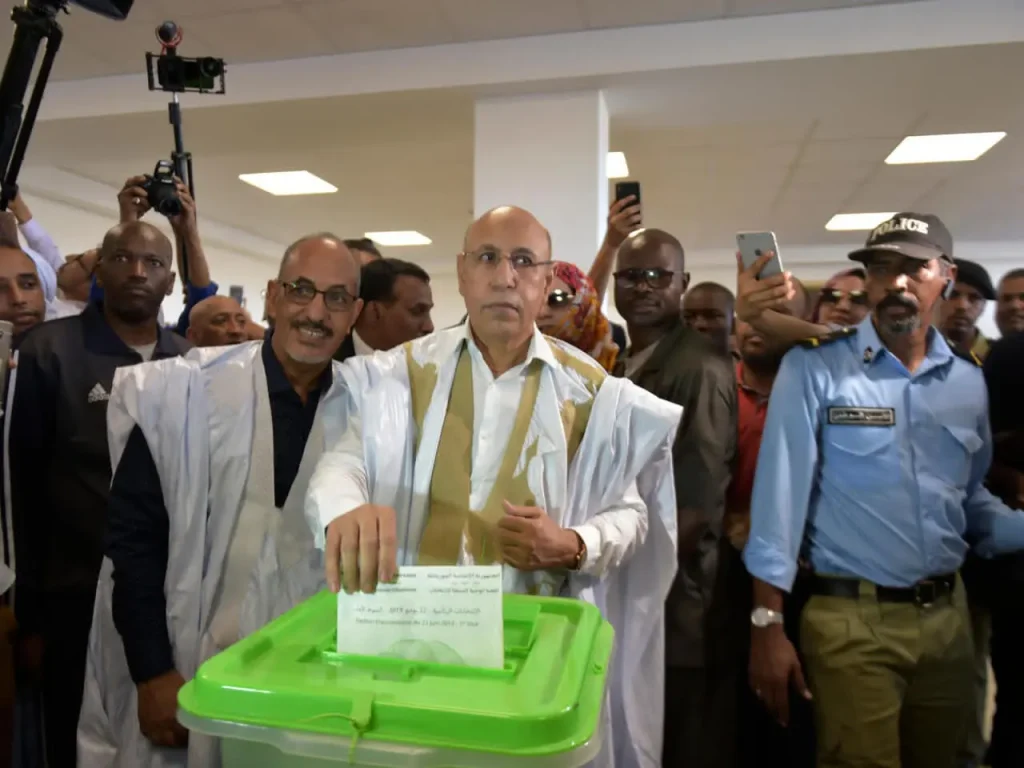CurrentRpeort Blog With 78% of votes counted, Mauritanian President Mohamed Ould Cheikh El Ghazouani has secured over 55% of the total votes, placing him in a commanding position in the presidential race. The preliminary results, announced by the Independent National Electoral Commission (CENI) on Sunday evening, show Ghazouani far ahead of his six rivals in the June 29 election.
Ghazouani’s Lead Over Competitors
In second place, human rights activist Biram Dah Abeid trails with less than 23% of the votes. The remaining candidates follow at a significant distance:
- Hamadi Ould Sid’ El Moctar: 12.82%
- El-Aid Ould Mohamedan: 3.52%
- Mamadou Boukari: 2.38%
- Outouma Soumare: 2.24%
- Mohamed Lamine Mourteji El Wafi: 0.97%
CENI has so far counted votes from 3,523 out of the 4,503 polling stations, representing 78.15% of the total. The continued counting confirms Ghazouani’s strong lead, making a comeback by any challenger increasingly unlikely.
Context of the Election
Mauritania, a North African nation with a population of 4.5 million, registered 1.9 million voters for this election. The election has been closely watched, as Ghazouani seeks reelection on a platform of continued economic growth and stability.
Despite accusations of corruption from critics, Ghazouani’s promise of progress appears to resonate with a significant portion of the electorate. His background as a former army chief and his role as the current chairman of the African Union (AU) bolster his profile as a stabilizing force in Mauritania.
Historical Significance
Ghazouani’s first election in 2019 marked the first democratic transition in Mauritania’s history. His current term has been characterized by efforts to drive economic development in the country.
Mauritania’s political system features a single-chamber parliament, the National Assembly. While the prime minister is appointed by the president, it is the directly elected president who wields significant executive power.
As vote counting progresses, the focus will be on the final results and the implications for Mauritania’s political and economic future.












